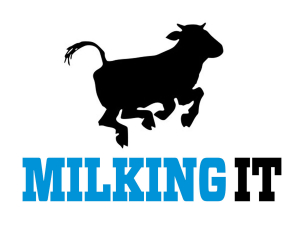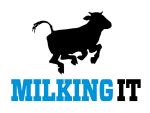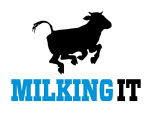Newcastle University in England researchers have found a trend during a study of cow names in the UK. No matter how large the dairy farm or the size of the herd, cows with names produced more milk than unnamed cows.
Scientific American summed it up: "Dairy farmers who reported calling their cows by name got 2,105 gallons out of their cows compared with 2,000 gallons in a ten-month cycle."
That's nearly 5% more and cow by cow, that can add up. The researchers have a theory - giving a cow a name and using it is a way to show kindness. It helps if you talk to her more and consider her more of an individual.
The cow becomes less stressed and more likely to produce more milk.

















